Rivian Explains Vehicle Servicing Program

Over the last few months, the automotive industry has been feeding the media a steady stream of materials about how great electric vehicles are. Your author even spent an hour last week on a press call where a famous German automaker attempted to educate us on how to use the cost of ownership over 10 years to help readers rationalize buying them over something requiring gasoline. While that should stay something about how the industry sees our relationship, it also seems to indicate it’s preparing an EV offensive in North America or has next to nothing up its sleeve for the remainder of 2020.
Of course, these are the legacy manufacturers we’re discussing, EV startups walk a slightly different path. Awash with more investment funding that seems reasonable, they’re in the midst of setting up factories so they can begin production of largely hypothetical products. There are also logistical questions that need handling, including figuring out who will be fixing EVs when nobody seems interesting selling them using the dealership model.
Over the weekend, Rivian explained how it planned on handling repairs. Though, if you thought it would be more complicated than copying a page from the Tesla playbook, you’re going to be disappointed.
The group will be comprised of physical service centers and certified professionals doing house calls. Rivian CEO RJ Scaringe recently informed Automotive News that the plan is to have the repair network up and running before most customers take delivery of the firm’s upcoming EVs — including the 100,000 vans it has promised to Amazon. While physical locations will be initially be limited to major markets, a fleet of mobile service units is supposed to pick up the slack.
“We’re launching a large number of service centers throughout the U.S., really in the next nine months, 41 service centers. In addition to those service centers, we’re building a very robust network of mobile service [providers] that will come to you, your business or your home,” Scaringe elaborated.
“What we deeply believe is that a significant majority of service operations necessary on a vehicle can be done remotely, can be done with our mobile service network, which from a customer’s point of view simplifies things dramatically. They no longer have to think about dropping their vehicles off. Service just happens when customers are at their house or at their office.”
This part of the brand’s “digital commerce platform” which foreshadows a subscription plan where vehicles are basically rented for a period of years, rather than purchased by an owner. The only reason Rivian hasn’t done this already is that insurance and financing haven’t been sorted out. But Scaringe said the company was working on things to have an all-encompassing “purchasing program” ready for consumers before 2022.
Servicing has to take priority, however. Last week, the company issued an online questionnaire for shops hoping to join the Certified Rivian Repair Network so it can start the evaluation process. Only those certified will be eligible to purchase Rivian replacement parts. If you’re the owner of an independent collision repair shop with a little experience working on EVs, you’re welcome to fill it out here to see if you qualify.
[Image: Rivian]

A staunch consumer advocate tracking industry trends and regulation. Before joining TTAC, Matt spent a decade working for marketing and research firms based in NYC. Clients included several of the world’s largest automakers, global tire brands, and aftermarket part suppliers. Dissatisfied with the corporate world and resentful of having to wear suits everyday, he pivoted to writing about cars. Since then, that man has become an ardent supporter of the right-to-repair movement, been interviewed on the auto industry by national radio broadcasts, driven more rental cars than anyone ever should, participated in amateur rallying events, and received the requisite minimum training as sanctioned by the SCCA. Handy with a wrench, Matt grew up surrounded by Detroit auto workers and managed to get a pizza delivery job before he was legally eligible. He later found himself driving box trucks through Manhattan, guaranteeing future sympathy for actual truckers. He continues to conduct research pertaining to the automotive sector as an independent contractor and has since moved back to his native Michigan, closer to where the cars are born. A contrarian, Matt claims to prefer understeer — stating that front and all-wheel drive vehicles cater best to his driving style.
More by Matt Posky
Latest Car Reviews
Read moreLatest Product Reviews
Read moreRecent Comments
- Irvingklaws I still prefer the looks of this generation to the new truck. If I were to buy new, it would be one of these.
- Ajla "and lower prices" 🤔
- Slavuta "Users’ awareness of Chinese EV brands is surprising, given that none of the companies sell vehicles here." --- Globalism is a coin with 2 sides"American automakers like Tesla have long been aware of the threat from Chinese auto companies." --- Does "threat" means 'competition'?
- Jeff S Not having a marketing department or marketing a product in the long run is not a good strategy for Tesla. Eventually we will have BYD and other Chinese EV companies in the US. Tesla is now a car company and less of a tech company and they will have to act more like a car company if they are to compete with BYD and other EV manufacturers. Tesla is no longer the only EV company.
- Jmo2 “The only problem is that fatal accidents have generally trended upward the more of the above safety systems came online.”Obviously you’ve accounted for the advent of smartphones in your analysis? Walk me through it…

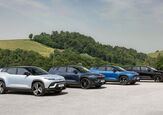
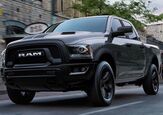

















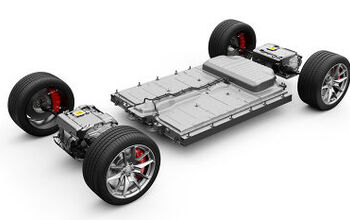

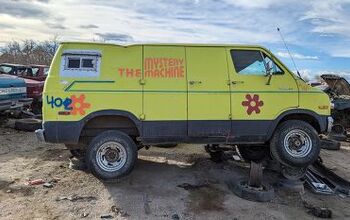
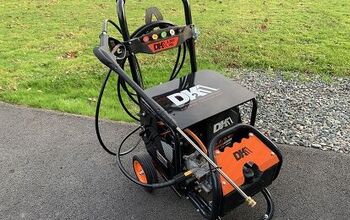




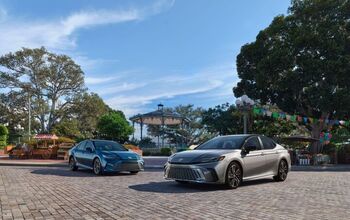





Comments
Join the conversation
"including the 100,000 vans it has promised to Amazon" Speaking of Amazon... Amazon has done a fairly amazing job of upgrading their own distribution network during the pandemic. https://tinyurl.com/yx8w3l8g
I always enjoy taking my Elio down to Pep Boys for some warranty work. They often throw in a free air freshener mirror hang tag.